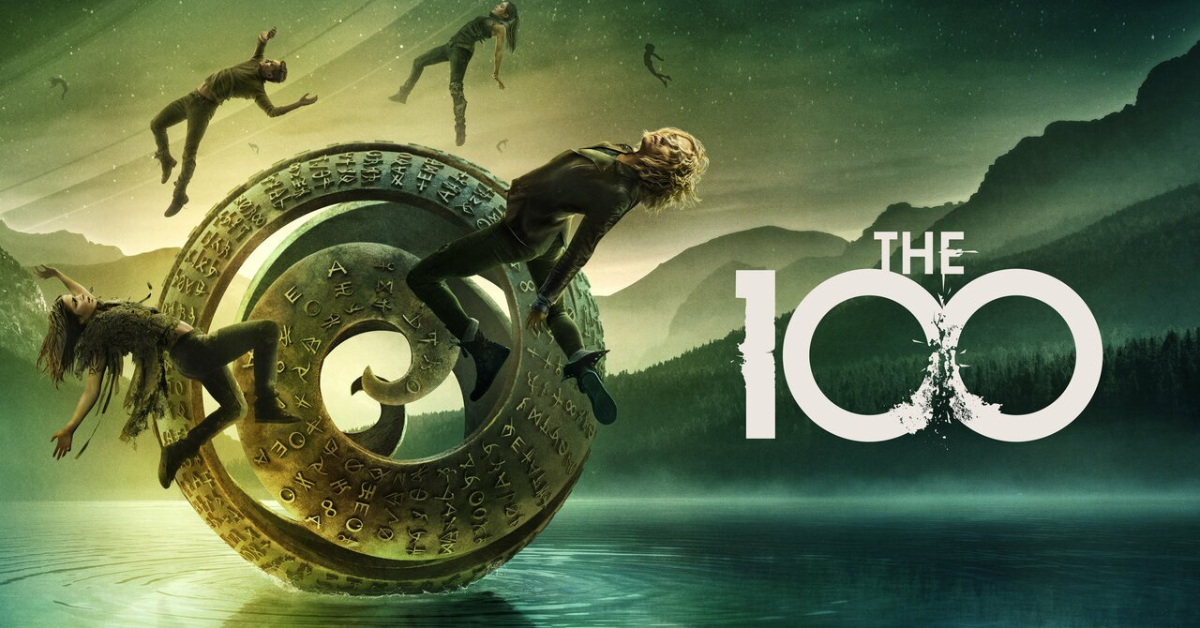Been thinking about the good society for a while now and using The 100's different societal structures as a reference point. If you haven't watched the show, it's a sci-fi action series that runs for seven seasons. Full disclosure, I didn't watch all seven, but I made it through a good chunk to deduce a few essential learning points for today's world.
The 100 are teenagers sent down from heaven, lol, space, to test whether Earth is survivable. See, human beings have been living on The Ark, a floating spaceship, for nearly a century now, after a devastating nuclear apocalypse wipes every living thing on Earth.
They've reproduced, so much so that resources on The Ark are running out. The only way, it seems, is to start cutting down the population. To start killing people for the greater good. Hence our first look at a society whose sole goal is to survive.
The Ark
The one thing driving people on The Ark is resources. At this point, you're only allowed to have one child. If you have more than one, you get floated into space. You get killed. If people get sick on The Ark, there's a quota of resources allowed per person. Like blood transfusion, for example. Only a certain amount is allowed, which translates to letting a person die if they need too much blood. The same goes for the doctor who broke the quota rule. They would get floated, no questions asked.
All the gore aside, The Ark does have a system that has kept them alive for years now - 95 years to be precise. A system where everyone does his part without pay. So, if you're good at engineering, for example, you would sign up for the repair and maintenance team, climbing up the ranks as executive positions open up. If you're into agriculture, you would work on the farming station. Often, parents would pass on their skills to their children. So, you'll find Clarke, for instance, gradually learning medicine under the tutelage of her mother who's a doctor on the ship.
Oh, on the discipline front. Well, there's floating, our version of "the electric chair," for major offenses. The chancellor, our version of the president, would oversee all floating, uhm, occasions. He'd personally pull the lever. He's so devoted to his job, in fact, that he floats his best friend for something many would consider noble i.e. wanting to tell others they were running out of oxygen soon. As for minor offenses, you would get thrown into prison. Say, you were a second child, like Octavia, younger sister to Bellamy, you'd spend all your life locked up while your parents are floated.
The system works until resources start to run out, and the chancellor and his team decide to ship 100 juvenile prisoners to Earth. In 95 years, they presume radiation levels to have reduced, but no one could know for sure. So, if the Earth is survivable, hurray, the rest of the Ark people can follow along. But if not, they'd have just sent 100 kids to their deaths. Mind you, the chancellor's son is among The 100. No nepotism here, apparently.
The 100
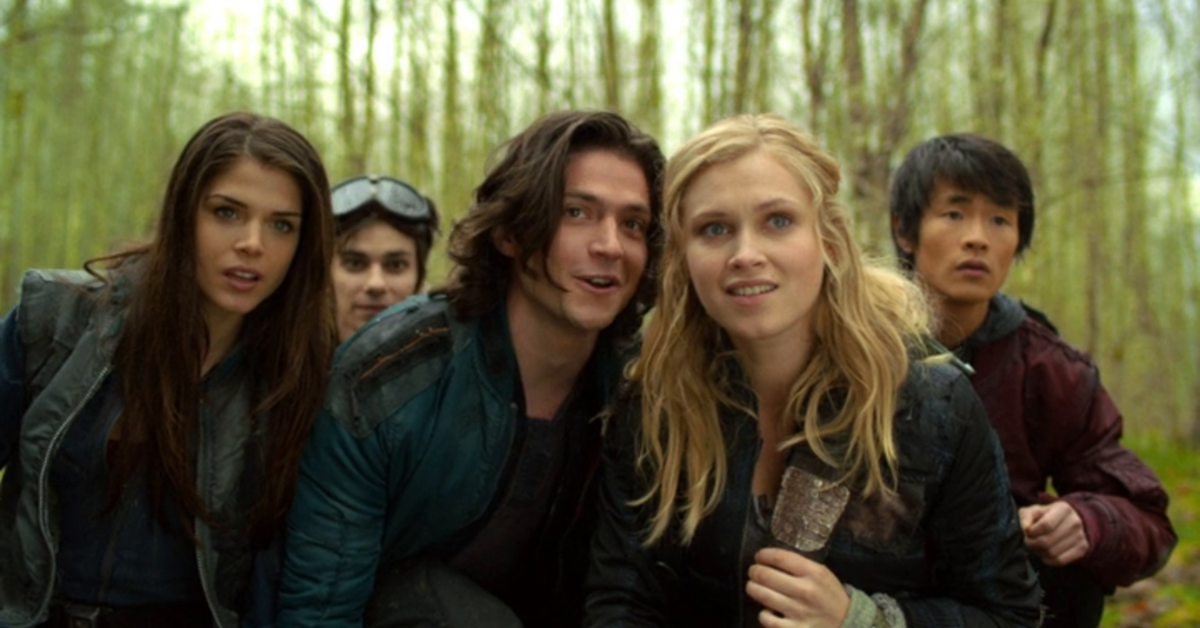
So, do The 100 survive? Is Earth survivable? Drumrolls, please...
Yes, they do!
Earth is not only survivable but also, nature, animals flourish here. The 100 quickly put up barricades around their camp. A small group would go out to hunt for food. Others would put themselves to good use, depending on the skills they have. Clarke becomes the primary physician, for example.
Before long, they find a military base stashed with loads of weapons. So, yay, they can now protect themselves from invaders, something that would come in handy sooner than they think.
Meanwhile, unrest quickly grows among The 100. People disagree with one another on different things. Clarke and Bellamy self-appoint themselves as the leaders, often deciding the way forward for everyone else. Having leaders helps, especially when the chancellor's son is murdered.
When people suspect John Murphy, they decide to hang him, and in a rather split-second way. But just before he dies, Charlotte, a 13 year old girl, confesses to the crime, saying she's the actual killer. She says she couldn't sleep from nightmares about her parents getting floated, so she decided to face her fears and kill the source of her nightmares - the chancellor's son.
Okay. So, a small group decides they want to hang the girl. It's the same fate they would give to anyone, after all. But Clarke and Bellamy manage to sneak her out of the camp and bring her along on the run. It doesn't end well, with the girl jumping off a cliff so everyone stops fighting. But it goes to show how quickly things can take a turn for the worst in a newly formed society without any rules. Suffice it to say, The 100 proceed to set up rules everyone must follow, with consequences for breaking the law, of course.
The Grounders
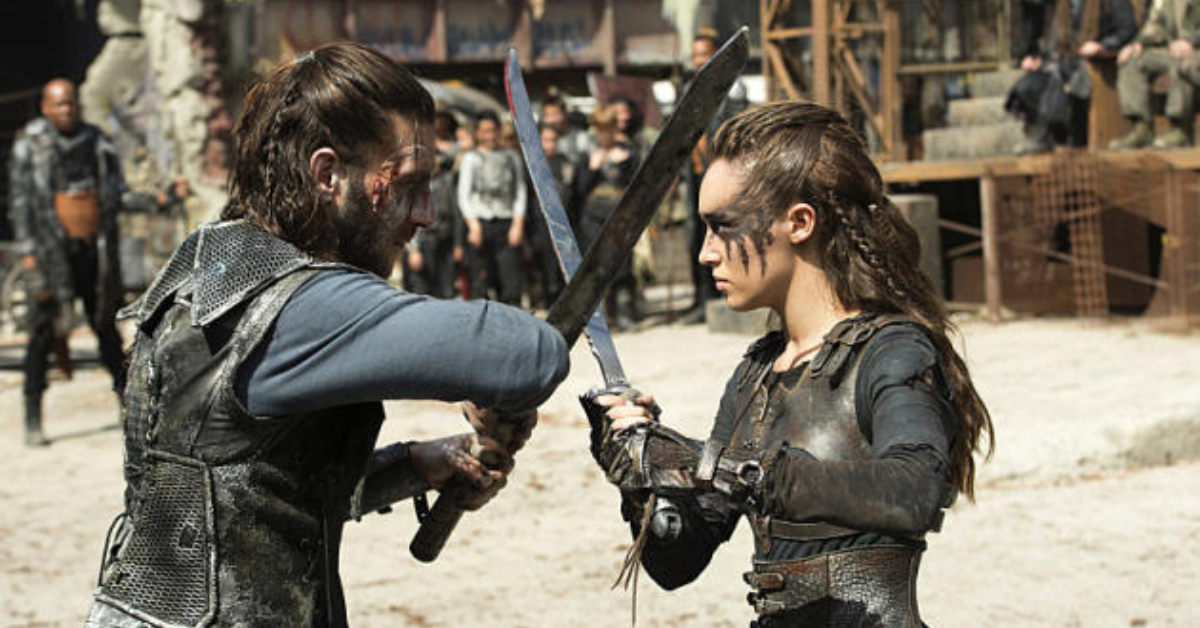
Meanwhile, a greater danger lies in wait in the belly of the forest. The series calls this third society "the grounders." Despite being portrayed as primitive, the Grounders seem to also a system in place that works for them all these years. They're split into different tribes. 12 in total. Each one has a leader. But the leaders of the tribes follow "the chosen one's" command.
The chosen ones usually ascend from a unique bloodline whose blood is black in color - don't ask. The commander's rule ends when they die, whether in battle or when challenged to fight to the death by another commander, I presume. Afterward, every child of the next generation with black blood will fight to the death for the crown.
The present commander, Lexa, a reasonable leader and strong warrior, engineers a treaty between 11 of the tribes. She leads them together under one rule. Whoever crosses any of the 11 tribes of the treaty would face the wrath of all 11 tribes in battle.
Speaking of battle, it seems to be the language the grounders understand. They begin to murder The 100 unprovoked, kicking off an ongoing war between the 100 aka Skaikru or Sky People and the grounders for the rest of the seasons.
Resources are plentiful, and the tribes respect each others territorial boundaries. So, not much to say on that front. However, if someone breaks the rules of the tribes, like Lincoln, for instance, who chooses Skaikru over his own tribe, or rather chooses peace, they would die by a thousand cuts. I imagine not many people dared to cross the commander or their tribe, as a thousand cuts sound pretty horrible to endure.
Oh, also, some children were born with birth defects, no thanks to the nuclear apocalypse. So, they were cast out of their tribe to fend for themselves out in the desert. It's a strategy to prevent them from passing on the radiation birth defects to the next generation, and quite typical "survival for the fittest" way of thinking. Physical impairment has no room here.
The Mountain People
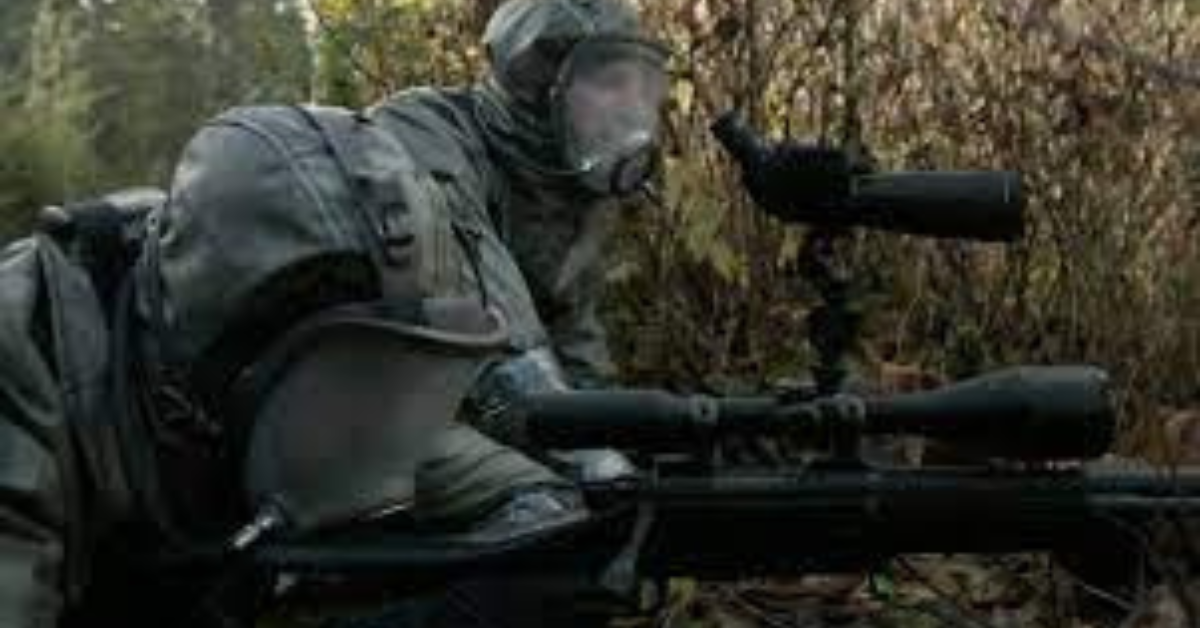
It turns out that there are other breeds of people in these woods, other post-apocalyptic survivors on Earth, called the mountain people. These folk took refuge in Mount Weather, a United States military underground bunker and missile silo launch facility, just before radiation hit Earth nearly a century ago. They have lived underground ever since.
The mountain people are more progressive, technology-wise. They kidnap grounders to harvest their radiation-resistant blood, and use it to heal their people exposed to radiation via transfusion. It's a temporary solution, though.
Meanwhile, the mountain people rescue the remaining 48 teenagers of The 100 from the terrors on the ground, bringing them into their replenished facility. Before long, they begin to use The 100 as lab rats to find a permanent cure against radiation. They would need to harvest all of their bone marrow through a most painful and inhumane process that, once done, would leave the donor breathless.
Of course, The 100 fight back. In fact, Clarke and Bellamy choose to compromise the radiation filtration system of the underground facility such that every mountain person dies from excessive radiation. We're talking 341 mountain people, kids included - massacred. But it's for the greater good, for the sake of saving their people from invasive surgery and consequent death.
Arkadia
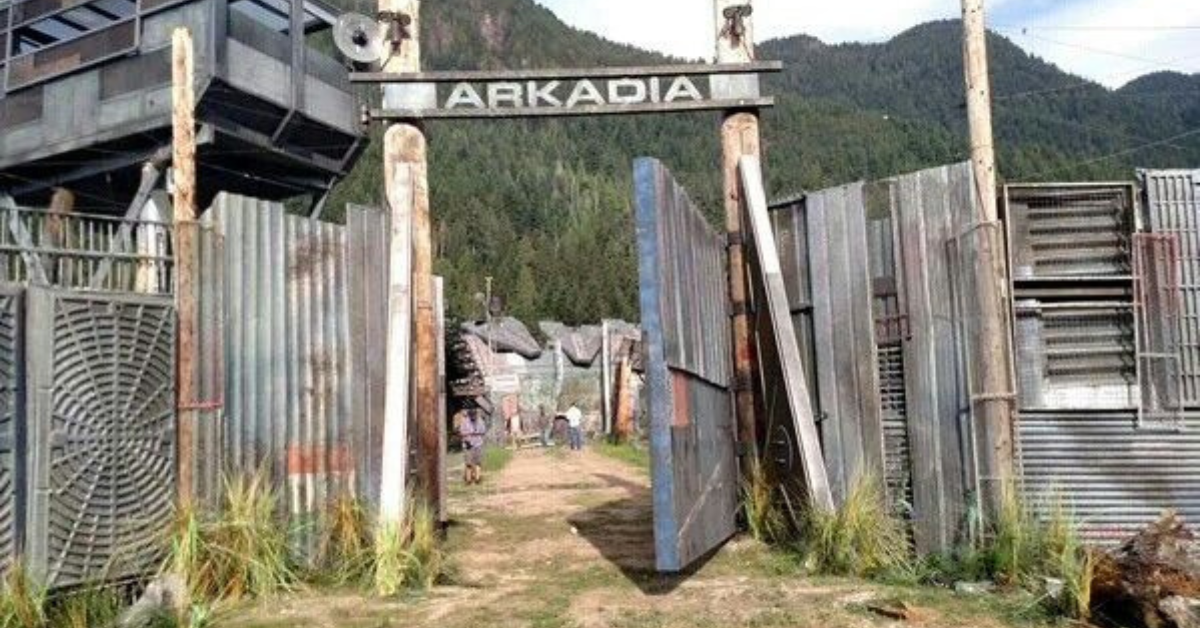
While The 100 are dealing with the Mountain People, the remaining population on a dying Ark are quickly running out of options. Oxygen is running out. They have already killed 300 people to save oxygen. But it's only a temporary solution.
Eventually, they decide to launch The Ark for Earth, except only a few of them survive the crash. Upon landing, the Arkadians set up camp. They search for The 100 who at this time, are captured by the mountain people.
Things remain pretty much the same as they were on the Ark. The only difference is no one is getting floated.
The Coalition
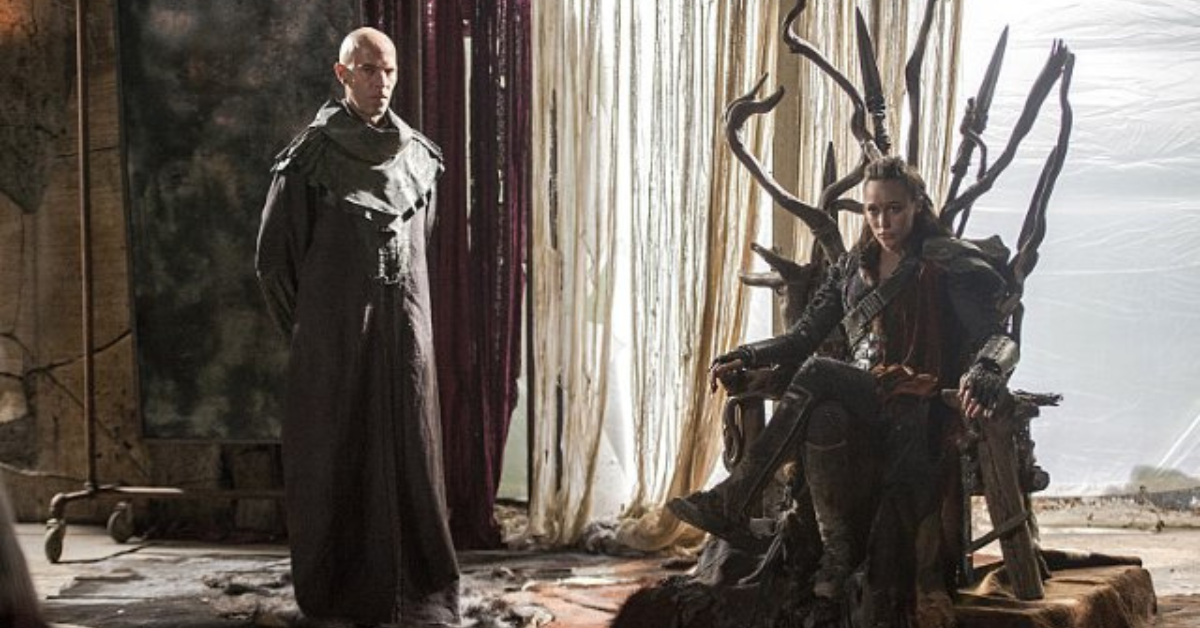
Remember the treaty between the 11 tribes of the grounders? Well, the chancellor of the Arkadians wants his people in. Strength in numbers and all. The commander graciously accepts the Arkadians into the treaty. But not everyone iwas happy about it, grounders and arkadians included.
So, a hostile takeover inevitably places a ruthless chancellor in power. The new chancellor is supportive of public executions. He kills grounders without mercy, including killing 300 non-hostile grounders sent by the commander to protect the Arkadians - while they slept.
But, surprisingly, the commander understands that this isn't the work of "all" arkadians. So, she doesn't take her revenge on Skaikru. Instead, she trusts the previous chancellor's plan to find a way to overthrow the new chancellor and restore order - kind of like executing a dictator and placing in his stead, a more reasonable leader, sibling usually, in today's world.
The City of Light
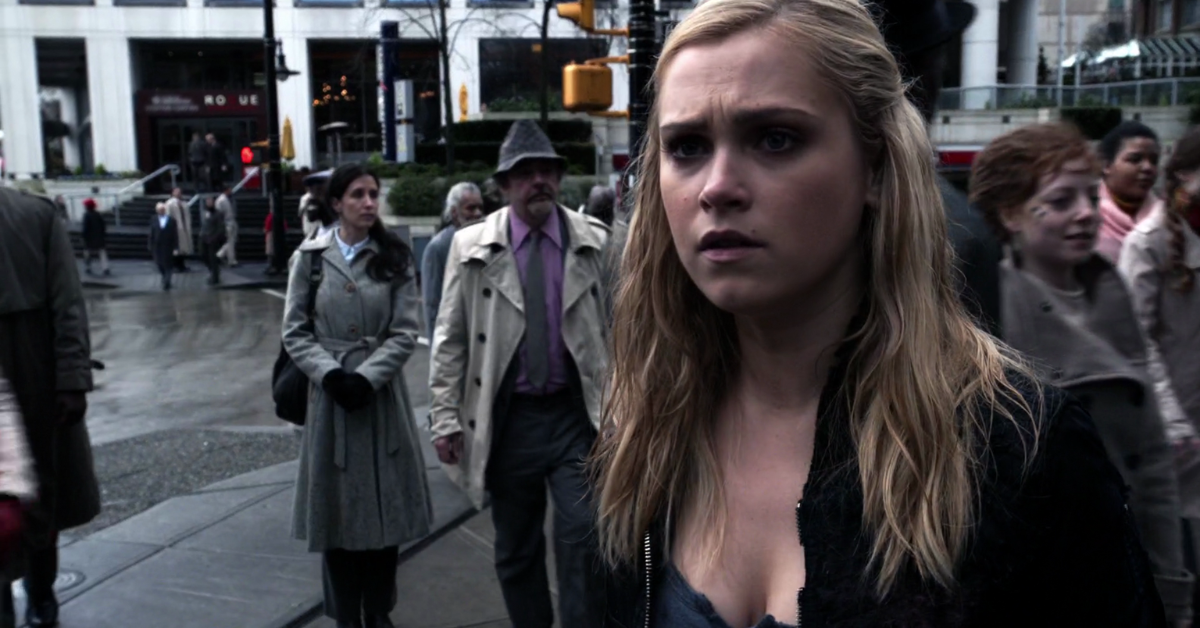
Let's wrap this up with The City of Light. So, a second wave of radiation is about to hit Earth. It'll be far more dangerous and would wipe out every living thing. So, an AI comes up with a plan to upload people's consciousness into her system, into the City of Light, so that they survive the apocalypse. Her selling point is the City of Light has no pain. It's beautiful, really, skyscrapers and all. Many jump at the chance willingly, but others need a little push, which quickly becomes the problem.
In fact, towards the end, the AI uses violence to force people into the city of light. Once they're in, she can control them. She can have them do anything she wants. But all your pain is gone, so is it a good trade-off? Oh, also, once you die on Earth, your consciousness lives on in the city of light. A bonus, maybe?
The Moral of the Story
I have, of course, only given you a summary of what to expect. Far more daunting (and less daunting) events take place in The 100. Do watch it when you get the time. Anyway, with all the deaths and sacrifices happening in The 100, you have to ask yourself, is it worth it?
At the start of the series, thousands of people were living on The Ark. By the end of Season 4, roughly only 100 Arkadians survive. In the end, only six people survive! They decide they'll live their days together as a family, grow old together, and when they die, the human race is over.
The moral of the story is, apparently, the damage a cycle of violence can cause. As Abby says to Raven, "despite the beauty humans are capable of, you can't break free from the cycle of violence," to which Octavia adds later on, ""If I kill you, I kill myself. If we keep killing each other, there won't be anyone left to save."
The truth is, The Ark was dying. Everyone would be doomed if they stayed. As a viewer, it's easy to say, hey, "if they'd only done THIS," but it's never that simple. You can live on borrowed time. The question is, if there's a chance to survive at the cost of others, would you take it?
Is there a society that seems to work better for you? Or would you rather invent your own? You can always check out our "Life in the Ozarks – One Minute Walkthrough, Life Lessons and Best Quotes" article and let us know of any questions or concerns.

